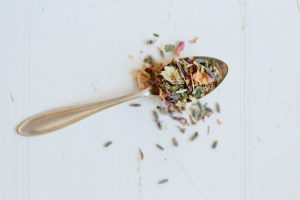The Naturopathic Co.

You're using an outdated browser. Please upgrade your browser to improve your experience.
Histamine is found in food, and is considered to hold the highest risk for human health when ingested in high amounts.
Histamine is synthesized in the body, by an enzymatic reaction performed by microorganisms. Some foods increase histamine as we consume them, other foods are liberators, meaning they help to release histamine from food.
We find higher histamine levels in aging foods, fermenting foods, and other high histamine foods such as:
Alcohol and other fermented drinks/ ie kombucha
All citrus fruits — oranges, lemons, lime and grapefruit
Any foods containing artificial colouring or preservatives
Avocado
Berries — fresh, frozen or canned
Chocolate and cacao
Dried fruit
Fermented dairy products, including cheese, yogurt and buttermilk
Fermented foods, such as pickles, relishes, sauerkraut
Leftover meat
Meats that are processed, cured, smoked or fermented
Mushrooms
Spinach
Spices — including curry powder, cayenne, chili, cloves, cinnamon, nutmeg
Tea
Tomatoes — fresh, canned, pureed or in sauces
Bone Broth
Painful or heavy periods
Fluid retention
PMS, PMDD, anxiety, depression
Headaches/ migraines / dizziness
Nausea
Stool fluctuations
Bloating
Nasal congestion
Sneezing
Skin flushing
Appetite changes
Muscular pain, fibromyalgia
When we can’t clear histamine from the body efficiently, then it accumulates, and for some people can cause symptoms mentioned above.
This can be due to excess dietary histamine intake, gut dysbiosis, mast cell release, or an inability to metabolise histamine sufficiently (low plasma DAO concentrations).
Gut dysbiosis as a link to higher systemic histamine
Research has shown that individuals with significantly lower abundance of of beneficial bacteria can have difficulty in clearing histamine from the body. And particularly individuals with higher presence of histamine secreting bacteria such as Staphylococcus, Proteus, Enterobacteriaceae , Clostridium perfringens and Enterococcus faecalis.
Having a gut full of healthy and diverse beneficial bacteria (and minimal pathogenic bacteria) is an important component of good digestive health in general, but also very much a requirement for clearing histamine.
Mast cell histamine release
Histamine can be released through mast cell activation from some pharmaceuticals, through some foods (listed above), through viral infection, and through oestrogen.
Other factors that can contribute to increased circulating histamine can be perceived or actual stress, fasting, dehydration, and insufficient sleep.
We need Diamine Oxidase (DAO) to break down histamine
DAO enzyme is reliant on vitamin C, vitamin B6, and copper.
Genetic predisposition, high histamine intake, vitamin B6/vitamin C/copper/SAMe deficient, gastrointestinal dysbiosis/inflammatory bowel, over-use of some pharmaceuticals
DAO deficiency is not the only reason for histamine symptoms, we need to address methylation problems as well as oestrogen metabolism. Constipation and gut dysbiosis may contribute to ‘oestrogen recycling’ too.
Insufficiency in SAMe, can also contribute to difficulty in metabolising oestrogen. High oestrogen triggers more histamine release.
Food sources of SAMe: animal proteins, particularly tuna, brazil nuts, whole soy foods, legumes.
Deficiencies in folate, B12, and choline can cause low methylation and low SAMe too
B6, zinc, vitamin C, vitamin E, Quercetin, broccoli extract, SAMe

Yvette is a qualified Naturopath and Nutritionist, MINDD Practitioner, member of the Naturopaths and Herbalists Association of Australia.
Yvette specialises in the treatment of gut health and digestive complaints, skin issues, mood disorders, hormonal concerns, fatigue, and more.
Comments are closed.